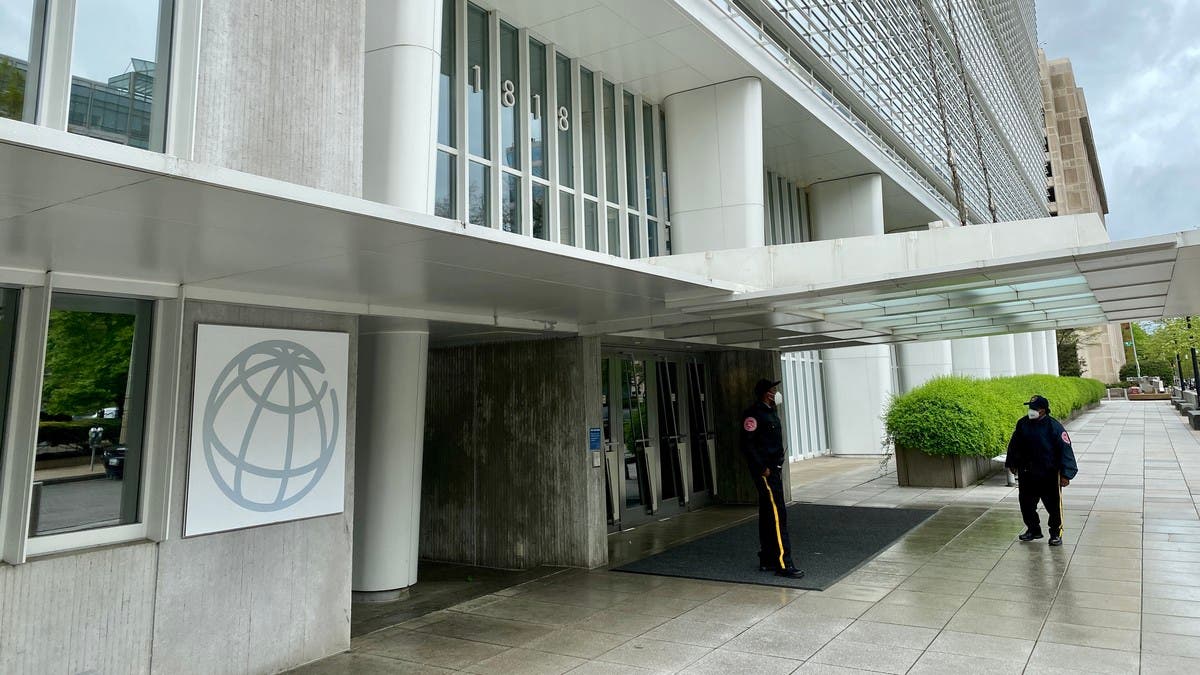The World Bank on Tuesday cut its forecasts for economic growth in the United States, the Euro area and China and warned that high debt levels, rising income inequality and new coronavirus variants threatened the recovery in developing economies.
It said global growth is expected to decelerate “markedly” to 4.1 percent in 2022 from 5.5 percent last year, and drop further to 3.2 percent in 2023 as pent-up demand dissipates and governments unwind massive fiscal and monetary support provided early in the pandemic.
For the latest headlines, follow our Google News channel online or via the app.
The forecasts for 2021 and 2022 – the first by a major international institution – were 0.2 percentage point lower than in the bank’s June Global Economic Prospects report, and could be knocked even lower if the Omicron variant persists.
The International Monetary Fund is also expected to downgrade its growth forecasts in its update on Jan. 25.
The bank’s latest semiannual forecast cited a big rebound in economic activity in advanced and developing economies in 2021 after contractions in 2020, but warned that longer-lasting inflation, ongoing supply chain and labor force issues, and new coronavirus variants were likely to dampen growth worldwide.
“Developing countries are facing severe long-term problems related to lower vaccination rates, global macro policies and the debt burden,” World Bank President David Malpass told reporters, citing troubling reversals in poverty, nutrition and health data and permanent impacts from school closures.
Seventy percent of 10-year olds in low- and middle-income countries cannot read a basic story, up from 53 percent, he said.
Ayhan Kose, author of the World Bank report, told Reuters the rapid spread of the highly contagious Omicron variant showed the continuing disruption caused by the pandemic, and said a surge that overwhelmed healthcare systems could knock up to an additional 0.7 further percentage point off the global forecast.
“There is a pronounced slowdown underway,” Kose said. “Policy support is being withdrawn and there is a multitude of risks ahead of us.”
COVID-19 has caused more than 300 million reported infections https://graphics.reuters.com/world-coronavirus-tracker-and-maps worldwide and over 5.8 million deaths, according to data compiled by Reuters. While 59 percent of the world’s population has received at least one dose of a COVID-19 vaccine, only 8.9 percent of people in low-income countries have received at least one dose, according to the Our World in Data website.
Malpass described a “growing canyon” in growth rates between advanced and developing economies, which World Bank economists say could spark increased social tensions and unrest.
Kose said the risks of a “hard landing” for developing countries were increasing given their limited options to provide needed fiscal support, coupled with persistent inflationary pressures and elevated financial vulnerabilities.
The report forecast growth in advanced economies declining to 3.8 percent in 2022 from 5 percent in 2021, and dropping further to 2.3 percent in 2023, but said their output and investment would still return to their pre-pandemic trend by 2023.
The bank cut its 2021 US gross domestic product growth by 1.2 percentage points to 5.6 percent, and forecast sharply lower growth of 3.7 percent in 2022 and 2.6 percent in 2023. It said Japan’s GDP growth would reach 1.7 percent in 2021, 1.2 percentage points less than forecast in June, rising to 2.9 percent in 2022.
China’s GDP was expected to expand by 8 percent in 2021, about 0.5 percentage point less than previously forecast, with growth seen slowing to 5.1 percent in 2022 and 5.2 percent in 2023.
Growth in emerging and developing economies is expected to drop to 4.6 percent in 2022 from 6.3 percent in 2021, edging lower to 4.4 percent in 2023, which means their output would remain 4 percent below the pre-pandemic trend.
Fragile and conflict-affected economies will remain 7.5 percent below their pre-pandemic trend, while small island states, rocked by the collapse of tourism, will be 8.5 percent below.
The bank noted that rising inflation — which hits low-income workers particularly hard — was at its highest since 2008 in advanced economies, and the highest since 2011 in emerging and developing economies.
Rising interest rates posed additional risks, and could further undermine the growth forecasts, especially if the United States and other large economies begin jacking up rates this spring, months earlier than expected, Kose said.
He said the pandemic had also pushed total global debt to the highest level in half a century, and concerted efforts were needed to accelerate debt restructuring efforts for countries facing debt distress, and get private-sector creditors engaged.
Read more: World gov't officials attend meetings on sustainable future minerals held in Riyadh

 World2 years ago
World2 years ago
 World2 years ago
World2 years ago
 Entertainment7 years ago
Entertainment7 years ago
 World7 years ago
World7 years ago
 Entertainment7 years ago
Entertainment7 years ago






